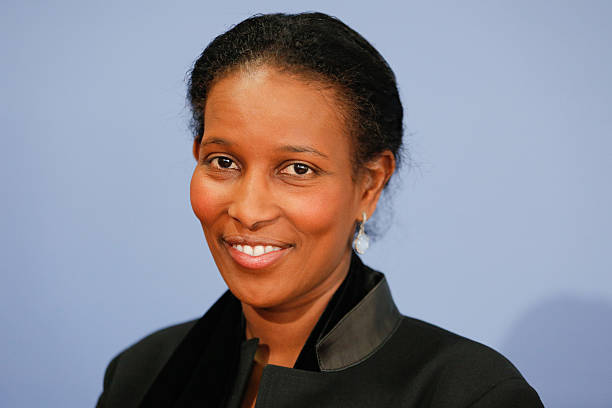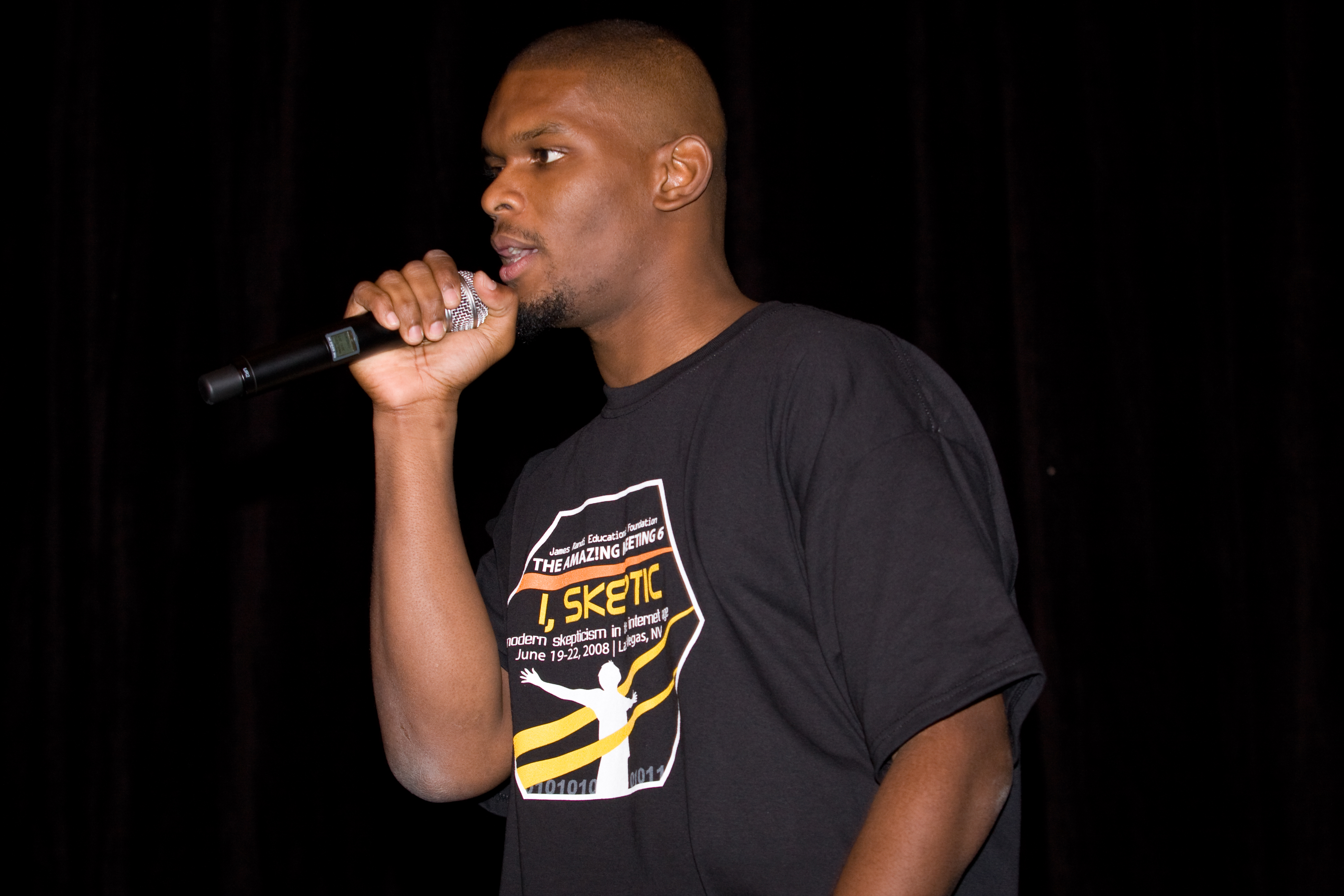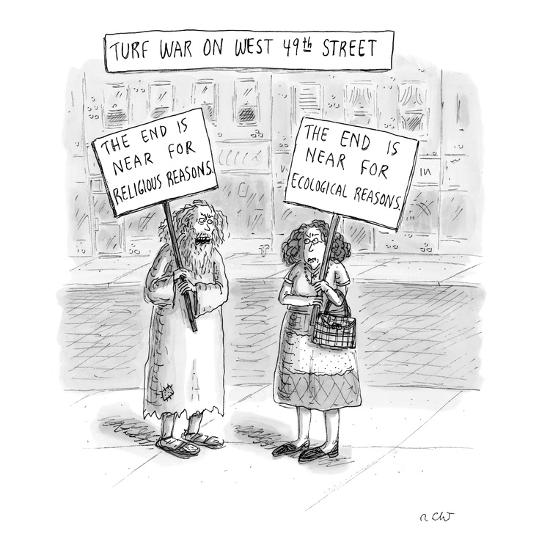Though I was unable to go to the Hague and see Spinoza's home, I was able to find his monument in Amsterdam. I had a great time, and finding this made my day!
PHIL 3310. Exploring the philosophical, ethical, spiritual, existential, social, and personal implications of a godless universe, and supporting their study at Middle Tennessee State University & beyond.
Sunday, May 27, 2018
Friday, May 4, 2018
Wednesday, May 2, 2018
Is Science a Religion? By Richard Dawkins
Posted for Matthew Case
My Final Post (Second Installment)
In this essay, Dawkins writes about faith and the dangers of it. In the opening paragraph, he refers to faith as “one of the world’s greatest evils, comparable to the smallpox virus but harder to eradicate.” He recalls numerous situations in which people have come forward to him and said, “Of course, your science is just a religion like ours. Fundamentally, science just comes down to faith, doesn’t it?” While I do not agree with everything that Dawkins says, for example, I do not think faith is a “brain virus.” I think that subscribing to a particular religion or becoming an atheist is up to each person to decide for themselves at the time that they see fit. However, I do agree with Dawkins’ point that science is based on tangible, verifiable evidence, which is much more impressive than hymnals and a book written thousands of years ago.
Dawkins continues to make a point about mental child abuse, in which he says, “Religion is the one field in our culture about which it is absolutely accepted, without question- without even noticing how bizarre it is- that parents have a total and absolute say in what their children are going to be, how their children are going to be raise, what opinions their children are going to have about the cosmos, about life, about existence.” I respect his point of view, however, I find it hard to consider it abuse. I say that because going to church and being indoctrinated as a child was not completely useless. I grew up in the church and attended every service, Sunday morning and evening, as well as Wednesday evenings, for years. As a young man it provided a place for me to be socialized and learn to interact with other people my age, which was a positive thing for me. However, another point Dawkins made is that children are given the title of “Muslim, Christian or Jew,” but we would never identify a child as a “Republican, neo-isolationist or economic monetarist.” This point I do agree with, because even though I was indoctrinated from birth and spent my formative years in the church, I was still able to see past God’s Holy Charade as a teenager. However, most of the people I know in Tennessee have not yet come to this conclusion. So, I guess the argument could be made that they were mentally abused, simply because they were not afforded the opportunity by their families to find out what religion worked for them. Instead, like me, they were informed immediately upon the acknowledgement of their consciousness that they were God fearing Christians, and that Jesus died for their sins. Not only because of the lack of choice, but because of the guilt that comes with being a Christian when you do certain things. Like sex before marriage, homosexuality, adultery, etc. Though being a homosexual is not a choice, most Christians believe that it is and are strongly against allowing an LGBTQ presence in their congregation.
In this essay, Dawkins provides a very interesting point of view about whether or not science is a religion, and I would recommend that all of you give it a read.
In this essay, Dawkins writes about faith and the dangers of it. In the opening paragraph, he refers to faith as “one of the world’s greatest evils, comparable to the smallpox virus but harder to eradicate.” He recalls numerous situations in which people have come forward to him and said, “Of course, your science is just a religion like ours. Fundamentally, science just comes down to faith, doesn’t it?” While I do not agree with everything that Dawkins says, for example, I do not think faith is a “brain virus.” I think that subscribing to a particular religion or becoming an atheist is up to each person to decide for themselves at the time that they see fit. However, I do agree with Dawkins’ point that science is based on tangible, verifiable evidence, which is much more impressive than hymnals and a book written thousands of years ago.
Dawkins continues to make a point about mental child abuse, in which he says, “Religion is the one field in our culture about which it is absolutely accepted, without question- without even noticing how bizarre it is- that parents have a total and absolute say in what their children are going to be, how their children are going to be raise, what opinions their children are going to have about the cosmos, about life, about existence.” I respect his point of view, however, I find it hard to consider it abuse. I say that because going to church and being indoctrinated as a child was not completely useless. I grew up in the church and attended every service, Sunday morning and evening, as well as Wednesday evenings, for years. As a young man it provided a place for me to be socialized and learn to interact with other people my age, which was a positive thing for me. However, another point Dawkins made is that children are given the title of “Muslim, Christian or Jew,” but we would never identify a child as a “Republican, neo-isolationist or economic monetarist.” This point I do agree with, because even though I was indoctrinated from birth and spent my formative years in the church, I was still able to see past God’s Holy Charade as a teenager. However, most of the people I know in Tennessee have not yet come to this conclusion. So, I guess the argument could be made that they were mentally abused, simply because they were not afforded the opportunity by their families to find out what religion worked for them. Instead, like me, they were informed immediately upon the acknowledgement of their consciousness that they were God fearing Christians, and that Jesus died for their sins. Not only because of the lack of choice, but because of the guilt that comes with being a Christian when you do certain things. Like sex before marriage, homosexuality, adultery, etc. Though being a homosexual is not a choice, most Christians believe that it is and are strongly against allowing an LGBTQ presence in their congregation.
In this essay, Dawkins provides a very interesting point of view about whether or not science is a religion, and I would recommend that all of you give it a read.
Dimensions, realms, and other earths- Malika Datta Second Installment
https://athphil.blogspot.com/2018/04/malika-datta-final-report-1st.html
For my second installment to further the discussion of reincarnation, I will like to pose the question of what are dimensions and realms? Do other earths or worlds exist? Throughout ancient and contemporary history , there are indications and theories of other dimensions, realms, and other earths. Individually, it has been concluded that we can reach these other realms and dimensions within ourselves (From a spiritual standpoint). Meditation is one of the ways this can be done. Below is a YouTube video link of KRS-1 (He is known for being an american rapper but he also speaks on history, culture, and theology.) explaining the 5th dimension. It is really interesting and worth a watch if you have the time to do so.
https://www.youtube.com/watch?v=_Ss6i7uUPwA
Using physics, there are said to be 10 dimensions. Below I quoted the detailed explanation of the physics view on dimensions.
"The first dimension, as already noted, is that which gives it length (aka. the x-axis). A good description of a one-dimensional object is a straight line, which exists only in terms of length and has no other discernible qualities. Add to it a second dimension, the y-axis (or height), and you get an object that becomes a 2-dimensional shape (like a square)."
"The third dimension involves depth (the z-axis), and gives all objects a sense of area and a cross-section. The perfect example of this is a cube, which exists in three dimensions and has a length, width, depth, and hence volume. Beyond these three lie the seven dimensions which are not immediately apparent to us, but which can be still be perceived as having a direct effect on the universe and reality as we know it."
"Scientists believe that the fourth dimension is time, which governs the properties of all known matter at any given point. Along with the three other dimensions, knowing an objects position in time is essential to plotting its position in the universe. The other dimensions are where the deeper possibilities come into play, and explaining their interaction with the others is where things get particularly tricky for physicists."
"The fifth and sixth dimensions are where the notion of possible worlds arises. If we could see on through to the fifth dimension, we would see a world slightly different from our own that would give us a means of measuring the similarity and differences between our world and other possible ones."
Read more at: https://phys.org/news/2014-12-universe-dimensions.html#jCp
Through spirituality, it is said that one can be reincarnated through different dimensions and realms but the only way to reach higher realms, is to raise your vibration. As I stated in my first installment, you have to elevate your spirit. Nonetheless, while vibrating in the 4th dimension, which earth is in. One can still communicate with beings and spirits in other dimensions and realms. It mostly depends on the spiritual state one is in. Are their mind body and spirit in alignment? What frequency are they vibrating on?
http://cosmicsaibaba.com/the-4th-dimension/
Above, is another link of an article discussing energy, alignment, other realms, consciousness, etc. Of course nothing is "scientifically" proven. It is based upon what you feel is true. The article offers a really interesting conclusion on the 4th dimension and other various subjects.
"In the sixth, we would see a plane of possible worlds, where we could compare and position all the possible universes that start with the same initial conditions as this one (i.e. the Big Bang). In theory, if you could master the fifth and sixth dimension, you could travel back in time or go to different futures."
"In the seventh dimension, you have access to the possible worlds that start with different initial conditions. Whereas in the fifth and sixth, the initial conditions were the same and subsequent actions were different, here, everything is different from the very beginning of time. The eighth dimension again gives us a plane of such possible universe histories, each of which begins with different initial conditions and branches out infinitely (hence why they are called infinities)."
"In the ninth dimension, we can compare all the possible universe histories, starting with all the different possible laws of physics and initial conditions. In the tenth and final dimension, we arrive at the point in which everything possible and imaginable is covered. Beyond this, nothing can be imagined by us lowly mortals, which makes it the natural limitation of what we can conceive in terms of dimensions."
Read more at: https://phys.org/news/2014-12-universe-dimensions.html#jCp
Through spirituality, it is said that one can be reincarnated through different dimensions and realms but the only way to reach higher realms, is to raise your vibration. As I stated in my first installment, you have to elevate your spirit. Nonetheless, while vibrating in the 4th dimension, which earth is in. One can still communicate with beings and spirits in other dimensions and realms. It mostly depends on the spiritual state one is in. Are their mind body and spirit in alignment? What frequency are they vibrating on?
http://cosmicsaibaba.com/the-4th-dimension/
Above, is another link of an article discussing energy, alignment, other realms, consciousness, etc. Of course nothing is "scientifically" proven. It is based upon what you feel is true. The article offers a really interesting conclusion on the 4th dimension and other various subjects.
Tuesday, May 1, 2018
Atheism in Minorities (Second Installment)
For my
second installment, I decided to showcase some atheists who stem from different
backgrounds that fall into the minority groups within America.
Ayaan
Hirsi Ali
Ali is a Somali-born activist, former Dutch politician, and
author who currently resides in the United States. She is most known for her
voice in fighting for the rights of Islamic women. Since she has personal
experience of abuse that is given for the sake of religion (genital mutilation
being one of them), she advocates for these teachings to be abolished around
the world. Ali is also one of the first to openly criticize Islam although her
native country is predominantly Islamic. One of her thoughts that caused uproar
was that Islam and Western democratic values are incompatible, one of the
reasons being that Islam upholds the rights of women. As I mentioned before,
Ayaan Hirsi Ali is an author who has written more than three books so far; some
of them being Infidel, Nomad, and Heretic.

Javier
Bardem
Javier Bardem was born in Las Palmas in the Canary Islands,
Spain where he was raised as a Catholic. When speaking of religion, he says,
Little by little, I started to
make some questions about it. I realized I respect people’s beliefs but I
started to really freak out about the manipulation of people’s beliefs in order
to gather fear. . . we have different [beliefs] but in the end it’s the same,
no?
He is most known for his role in the film No Country for
Old Men, which won him an Academy Award. His upbringing involved a background
of acting and filmmaking in which he credits his involvement in movies from.
Bardem is also heavily involved in politics, something he says that comes from
his family as well. Currently, he is married to Penelope Cruz and is still
acting.

Eddie
Collins
Eddie Collins, a hip hop rapper who also identifies with the
name Greydon Square, is known to be the “atheist rapper.” He was born in
Compton, California and his music heavily reflects that. Square lived a
difficult childhood that included gang related incidents on a daily, as well as
a lack of a mother and father figure. As a result, Collins was constantly in
trouble. Eventually, to reform himself, he decided to join the army in which he
served in Iraq. Once he returned from his deployment, Square resorted to music
in order to cope with the trauma he witnessed. While studying physics in
Phoenix, Arizona, Eddie Collins became involved with free thought. This is very
evident in his music; he essentially uses his lyrics to express his thoughts like
many other rappers, but his topics seem more personal. He is still present in
school, and now does performances in conferences and conventions where he can
be found speaking of his beliefs. (On the second link, some of his music is
available! If you enjoy music that sort of resembles old rap, like Tupac or
Biggie, then I think you will enjoy this tooJ)

Link to first part: http://athphil.blogspot.com/2018/04/atheism-in-minorities-first-installment.html
Subscribe to:
Comments (Atom)





